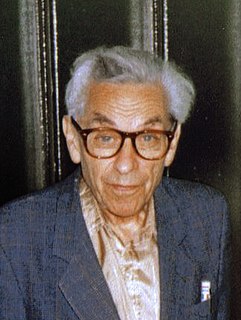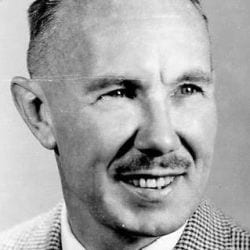A Quote by Stephen Hawking
One can imagine that God created the universe at literally any time in the past. On the other hand, if the universe is expanding, there may be physical reasons why there had to be a beginning. One could imagine that God created the universe at the instant of the big bang, or even afterwards in just such a way as to make it look as though there had been a big bang, but it would be meaningless to suppose that it was created before the big bang. An expanding universe does not preclude a creator, but it does place limits on when he might have carried out his job!
Quote Topics
Afterwards
Any
Bang
Been
Before
Beginning
Big
Big Bang
Carried
Could
Created
Creator
Does
Even
Expanding
Expanding Universe
God
Had
Hand
His
Imagine
Imagine That
In The Past
Instant
Job
Just
Limits
Literally
Look
Make
May
Meaningless
Might
Other
Out
Past
Physical
Place
Reasons
Such A Way
Suppose
Though
Time
Universe
Way
Why
Would
Would Be
Related Quotes
Observations indicate that the universe is expanding at an ever-increasing rate. It will expand forever, getting emptier and darker. Although the universe doesn’t have an end, it had a beginning in the Big Bang. One might ask what is before that but the answer is that there is nowhere before the Big Bang just as there is nowhere south of the South Pole.
Of course, Jastrow's comment is exaggerated at best; theologians hardly predicted the Big Bang. If our universe turns out to be closed, hence with an end, this does not mean apocalyptic visions of the end of the world were on target. And even if a beginning for the universe is a successful prediction of one version of theism, this is still not that impressive. After all, even a stopped clock is right twice a day. The Big Bang becomes strong support for God only with an argument showing that such a beginning requires a Creator.
So when people ask me if I believe God created the universe, I tell them that the question itself makes no sense. Time didn't exist before the Big Bang, so there is no time for God to make the universe in. It's like asking for directions to the edge of the earth; the earth is a sphere, it doesn't have an edge, so looking for it is a futile exercise.
As we shall see, the concept of time has no meaning before the beginning of the universe. This was first pointed out by St. Augustine. When asked: What did God do before he created the universe? Augustine didn't reply: He was preparing Hell for people who asked such questions. Instead, he said that time was a property of the universe that God created, and that time did not exist before the beginning of the universe.
Ironically, members on both sides of the debate do agree about one thing: big bang cosmology puts their position in jeopardy. The big bang poses a problem for young-earth creationists because it makes the universe billions of years old rather than thousands. Such an assertion undercuts their system at its foundation. Big bang cosmology also presents a problem for atheistic scientists because it points directly to the existence of a transcendent Creator - a fact they dare not concede.
Big bang cosmology is probably as widely believed as has been any theory of the universe in the history of Western civilization. It rests, however, on many untested, and in some cases untestable, assumptions. Indeed, big bang cosmology has become a bandwagon of thought that reflects faith as much as objective truth.
There's a possible qualification I can make here about a non-pantheist god that is in some way tenable, and that is the idea of a god that has in some way discharged the universe from its own substance (I associate this with the word 'tzimtzum'), possibly even by a form of suicide - a suicide that might have been the Big Bang.

































